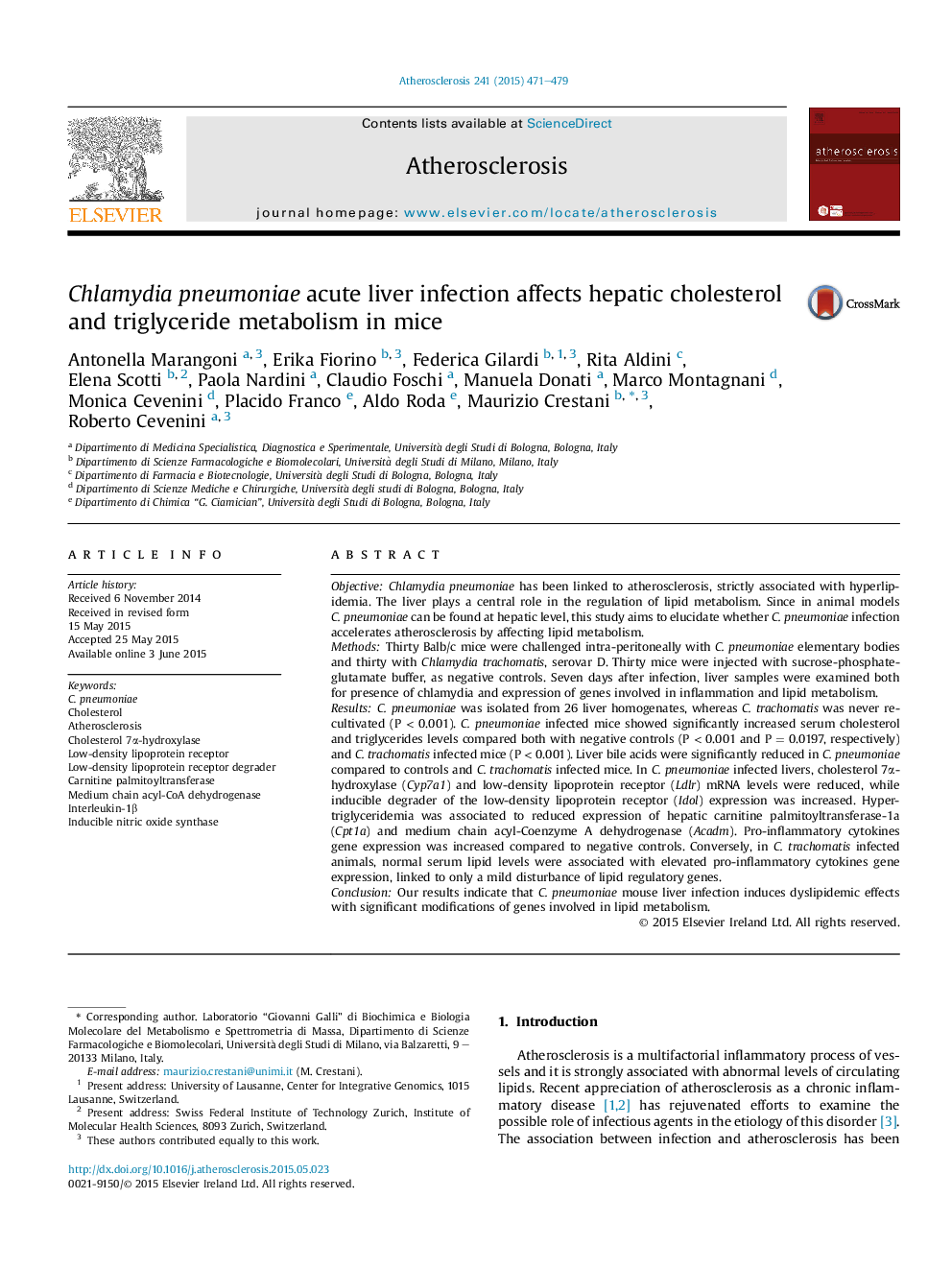| کد مقاله | کد نشریه | سال انتشار | مقاله انگلیسی | نسخه تمام متن |
|---|---|---|---|---|
| 5944329 | 1172343 | 2015 | 9 صفحه PDF | دانلود رایگان |

- Balb/c mice were challenged with Chlamydia pneumoniae (CP) or C. trachomatis (CT).
- Only CP, but not CT, was re-cultivated from the livers of inoculated mice.
- Only CP infected mice showed increased cholesterol and triglycerides levels.
- Hyperlipidemia was due to decreased liver cholesterol and triglycerides catabolism.
- The pro-atherogenic role was species-specific for CP.
ObjectiveChlamydia pneumoniae has been linked to atherosclerosis, strictly associated with hyperlipidemia. The liver plays a central role in the regulation of lipid metabolism. Since in animal models C. pneumoniae can be found at hepatic level, this study aims to elucidate whether C. pneumoniae infection accelerates atherosclerosis by affecting lipid metabolism.MethodsThirty Balb/c mice were challenged intra-peritoneally with C. pneumoniae elementary bodies and thirty with Chlamydia trachomatis, serovar D. Thirty mice were injected with sucrose-phosphate-glutamate buffer, as negative controls. Seven days after infection, liver samples were examined both for presence of chlamydia and expression of genes involved in inflammation and lipid metabolism.ResultsC. pneumoniae was isolated from 26 liver homogenates, whereas C. trachomatis was never re-cultivated (P < 0.001). C. pneumoniae infected mice showed significantly increased serum cholesterol and triglycerides levels compared both with negative controls (P < 0.001 and P = 0.0197, respectively) and C. trachomatis infected mice (P < 0.001). Liver bile acids were significantly reduced in C. pneumoniae compared to controls and C. trachomatis infected mice. In C. pneumoniae infected livers, cholesterol 7α-hydroxylase (Cyp7a1) and low-density lipoprotein receptor (Ldlr) mRNA levels were reduced, while inducible degrader of the low-density lipoprotein receptor (Idol) expression was increased. Hypertriglyceridemia was associated to reduced expression of hepatic carnitine palmitoyltransferase-1a (Cpt1a) and medium chain acyl-Coenzyme A dehydrogenase (Acadm). Pro-inflammatory cytokines gene expression was increased compared to negative controls. Conversely, in C. trachomatis infected animals, normal serum lipid levels were associated with elevated pro-inflammatory cytokines gene expression, linked to only a mild disturbance of lipid regulatory genes.ConclusionOur results indicate that C. pneumoniae mouse liver infection induces dyslipidemic effects with significant modifications of genes involved in lipid metabolism.
Journal: Atherosclerosis - Volume 241, Issue 2, August 2015, Pages 471-479